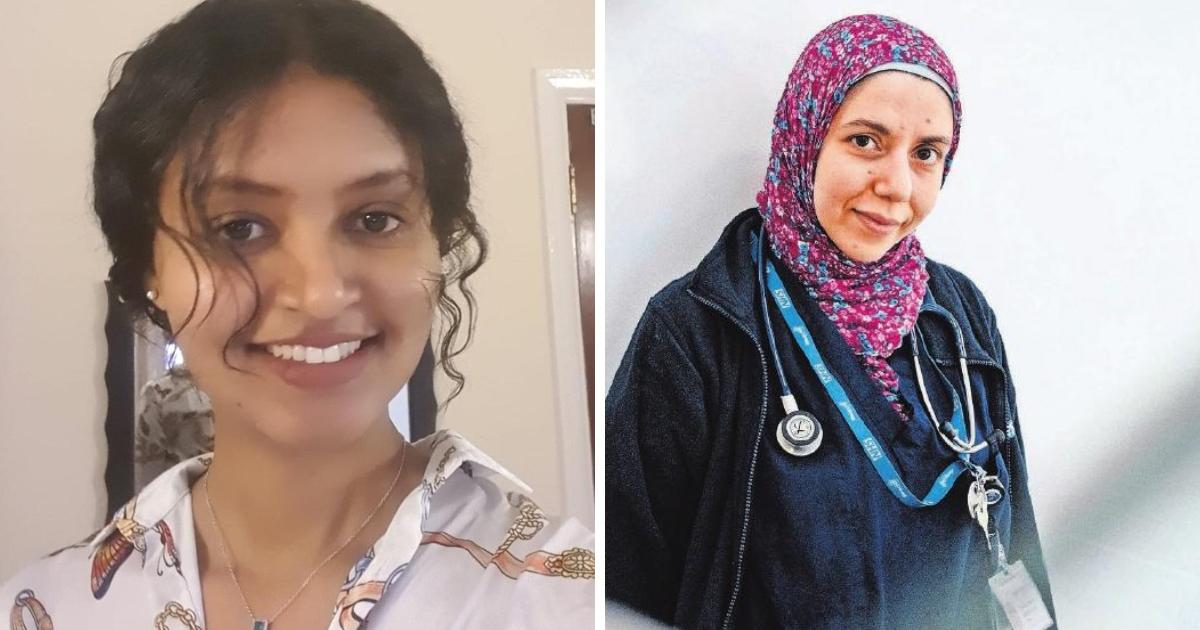This Refugee Week (16-22 June), NHS England in the North West celebrates the remarkable journeys of refugee and asylum seeker healthcare professionals who have overcome trauma and discrimination to serve their new communities.
“Most people who meet me now – in scrubs, on the wards – don’t realise that just a few years ago I was undocumented.
An ‘illegal doctor’ doesn’t exactly roll off the tongue,” said Dr Rula Hamad, a Palestinian refugee from Syria now training as a GP and living in Salford.
More: ‘The NHS is stuck in a waiting room and needs to be seen urgently’
More: ‘What does NHS England’s end mean for the future of healthcare?’
More: Article amendment for NHS Special Report
“I arrived here alone, broken in more ways than I could count. I wasn’t thinking of my career; I was just trying to survive,” said Rula who was born a Palestinian refugee to refugee parents, who were born to refugee grandparents.
“Then life made me a refugee again, twice. I fled Syria during the war, before I could finish my anaesthesia training. I wasn’t thinking of my career; I was just trying to survive. But the moment I felt even a little safe, the very next breath was filled with the need to get back to medicine. Because being a doctor isn’t what I do, it’s who I am.”
On coming to the UK, Rula came to learn about REACHE (Refugee and Asylum Seekers Centre for Healthcare Professionals Education), a unique project that is supported by NHS England in the North West and which has, over the past 23 years, been offering refugee and asylum seekers a way to enter the NHS by completing registration with the General Medical Council and the Nursing and Midwifery Council.
Since its inception, REACHE has transformed lives, helping 788 healthcare professionals pass through its programme, including 600 doctors and the rest allied healthcare professionals consisting of nurses, pharmacists, dentists and radiographers.
Current data shows 323 REACHE doctors have registered with the GMC and gone on to employment, and around 50 are presently undertaking GP training or are on the GP register.
“When I came to REACHE, I was a mess,” said Rula. “I had PTSD, physical injuries, I was grieving, malnourished, all while trying to convince people I was a doctor in a language I hadn’t studied medicine in.
“I’ve been called ‘Osama’ for wearing a scarf, told to ‘go back to the desert’ which I’ve never even seen. I was exhausted, homesick and honestly didn’t think I’d ever feel at home in the UK, not with this cold, not without sun. REACHE was my sun.
“They didn’t just give me classes. They gave me a reason to believe I could belong here. They helped with housing, with food, with my mental health. They understood that trauma doesn’t pause for exams.”
(Image: NHS)
Rula is now training to be a GP and has joined REACHE as an Alumni Liaison Officer. “I get to help people every day. I get to heal – not just others, but myself. My hope for the future? To stay in medicine, to give back, and to always be that person who says, ‘I see you. I’ve been there. You’re not alone.’ Because no one should have to rebuild their life alone,” she said.
Before coming to the UK as a refugee, Dr Hujjat Ashori worked in emergency medicine in Afghanistan.
Like many refugee doctors his journey to practise came with its own set of challenges and uncertainties.
“REACHE to me means hope. It offered more than academic support – it gave me a community, a safe place to learn, adapt and grow,” said Hujjat who lives in Fallowfield.
“One of the biggest hurdles I faced was navigating a completely new healthcare system. Understanding how the NHS works, its structure, values and expectations felt overwhelming at first. But REACHE bridged that gap, helping me feel prepared and confident to step into my role.”
Hujjat says he is now proud to be working as a Rotational Clinical Fellow in the Stroke Department at Salford Royal Hospital, one of the leading stroke centres in the country.
“The path hasn’t been easy, but every step has been meaningful. Looking ahead, my ambition is to pursue a career in cardiology, a field where I can combine my acute care background with long-term patient impact,” he said.
(Image: NHS)
Dr Feven Kenea is a junior doctor who left Ethiopia and now works in the NHS after joining REACHE in 2022. “I used to work as a junior doctor in my country. Joining REACHE has made my life easier and made it possible for me to be where I am today. I was supported by so many people.
“Many thanks to the REACHE staff who motivated me by saying there is light at the end of the tunnel. They were right, now I am able to see that light,” said Feven who lives in Salford.
